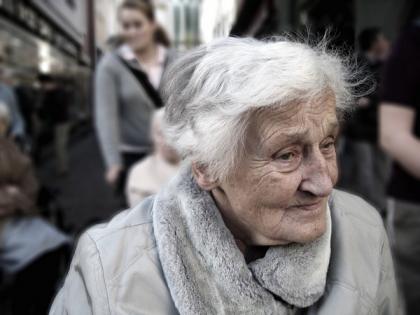Older adults more likely to condemn even accidental harm
By ANI | Published: August 10, 2019 09:35 PM2019-08-10T21:35:38+5:302019-08-10T21:45:02+5:30
Older adults are more likely to condemn and demand punishment for acts that cause harm, even if no harm was intended, suggests a study.

Older adults more likely to condemn even accidental harm
Older adults are more likely to condemn and demand punishment for acts that cause harm, even if no harm was intended, suggests a study.
"Although older adults are capable of empathising with someone's intentions when making a moral evaluation, they appear less likely to do so than younger individuals when those actions cause harm," said Janet Geipel of the University of Chicago.
Geipel and her colleagues conducted a series of experiments examining how younger adults -- 21 to 39 -- and older adults -- 63 to 90 -- would morally evaluate accidentally harmful and helpful actions.
The first experiment involved 60 participants equally split into younger and older adults. Each participant was presented with eight hypothetical scenarios in which a person's actions resulted in either a positive or negative outcome.
In each case, the scenario was described in such a way that the participant could infer whether the act was intended to cause the outcome that it did, as opposed to simply being an accident.
After each scenario with a negative outcome, participants were asked to judge the immorality of the described action and how much it should be punished. In the case of a positive outcome, participants were asked to judge the goodness of the action and how much it should be rewarded. Participants answered all questions on a scale of zero to ten.
The researchers found that older adults were more likely to condemn accidentally harmful acts and recommend that the person be punished, even when it appeared that the harmful action was unintentional. Interestingly, they did not find any age difference in how accidentally helpful actions were evaluated.
"We found that while younger adults condemned more severely negligent than non-negligent actions, older participants condemned both equally," said Geipel.
"Further analysis showed that perceived negligence mediated the relationship between age group and the judgment of moral wrongness." Geipel believes this phenomenon may have something to do with the fact that people experience cognitive decline as they age.
Making moral judgments based on intent requires more cognitive effort than simply condemning outcomes. Since older adults may find considering intent more mentally taxing than younger adults, they would be more likely to condemn even unintentional harm.
"The present results suggest that older adults may attend less to the intentions of the accused and more to the negative outcomes that the accused produced," said Geipel. "Put simply, the present findings imply that older adults may be more likely to convict."
( With inputs from ANI )
Open in app